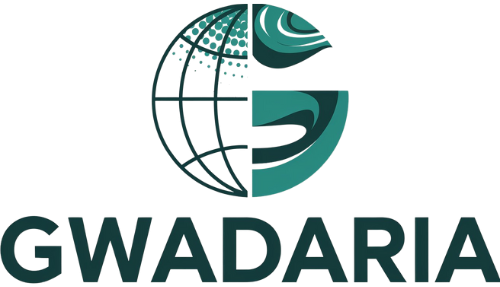Key takeaways:
Escrow ensures equity and safety by holding funds or paperwork with a impartial third social gathering till all transaction phrases are met.
There are two most important sorts of escrow: Transaction escrow (throughout the buy) and mortgage escrow (after closing).
Escrow accounts simplify possession prices by combining property taxes and insurance coverage into one predictable month-to-month fee.
In addition they cut back threat for each householders and lenders by guaranteeing important funds are made on time.
As a first-time homebuyer, you could have encountered the time period “escrow”, however what does it truly imply? Escrow refers to holding one thing, like funds or paperwork, by a impartial third social gathering till all obligations in a transaction are fulfilled. In actual property, “escrow” can refer to 2 distinct however associated ideas:
Transaction escrow (Throughout house buy): Protects the client’s earnest cash deposit and ensures sale situations are met earlier than funds and possession are transferred
Mortgage escrow account (Put up-purchase): Manages and pays annual property taxes and householders insurance coverage in month-to-month installments
Whether or not you’re shopping for a house in Albany, NY, or a rental in sunny Scottsdale, AZ, understanding escrow helps make the method much less overwhelming. Let’s discover how escrow works and why it issues.
How does escrow work in actual property?
At its core, escrow is a authorized association through which a impartial third social gathering holds belongings on behalf of different events who’re within the means of finishing a transaction. These third events be sure that each purchaser and vendor meet the agreed-upon situations earlier than any cash or property adjustments palms.
Throughout the buy section, escrow serves as a safeguard and holds your earnest cash deposit, guaranteeing that neither social gathering is uncovered to undue threat because the transaction progresses. As soon as the sale is finalized, your mortgage lender will sometimes arrange a separate escrow account, this time to handle future property bills like taxes and householders’ insurance coverage. This offers added safety and belief for all events concerned.
What’s an escrow account?
After you shut on a house, your lender opens an escrow account to deal with recurring homeownership prices, equivalent to:
Property taxes
Householders insurance coverage
Personal mortgage insurance coverage (in some instances)
As an alternative of managing these bills your self, you’ll make one month-to-month fee to your lender that features your mortgage plus a prorated share of your estimated taxes and insurance coverage. The lender then pays these payments in your behalf after they’re due.
How escrow accounts mitigate threat
Escrow accounts act as a built-in security system for each householders and lenders, guaranteeing that important property bills are dealt with robotically and on time. This reduces the possibility of missed funds, penalties, or monetary publicity.
Key methods escrow accounts cut back threat:
Stop missed funds: Taxes and insurance coverage are paid on schedule, avoiding late charges or protection lapses.
Shield lender pursuits: Ensures property taxes and insurance coverage stay present, safeguarding the lender’s funding.
Scale back home-owner stress: Consolidates a number of giant payments into predictable month-to-month funds.
Reduce human error: Automates important transactions, decreasing the danger of oversight or monetary mismanagement.
Why escrow issues in actual property
Think about you’re shopping for a house, and the vendor agrees to repair a plumbing challenge earlier than closing. An escrow agent ensures the restore is accomplished earlier than releasing any cash or property. With out escrow, there’s no impartial enforcement, and within the above-noted scenario, the client is put in danger.
Escrow additionally protects the vendor, guaranteeing the client’s earnest cash is secured and the closing proceeds easily. Even for householders not seeking to purchase or promote, escrow ensures important payments receives a commission, which protects each the proprietor and their lender from tax liens or insurance coverage lapses.
The homebuying course of entails many transferring components, from inspections and value determinations to last paperwork. Escrow retains these items in sync. Through the use of an escrow agent to carry deposits and paperwork, each events are protected against untimely or incomplete transfers. On this manner, escrow turns into the mechanism that ensures equity and follow-through.
What’s the escrow course of?
Escrow begins as soon as the vendor accepts a suggestion. The steps typically seem like this:
1. Earnest cash deposit
The customer deposits “good faith” cash into escrow. This reveals they’re severe and dedicated.
2. Contingencies and situations
Throughout escrow, each events fulfill situations within the buy settlement. This will embody:
Inspections
Value determinations
Mortgage approval
Title search
Repairs
3. Escrow length
Sometimes, escrow lasts 30-60 days. Delays can happen as a result of inspection points, appraisal discrepancies, or financing holdups.
4. Closing
As soon as all necessities are met:
Paperwork are signed
The deed transfers to the client
The vendor receives fee
The lender units up the escrow account for ongoing bills
At closing, you’ll pay escrow charges (typically 1–2% of the house worth), preliminary escrow deposits (3-12 months of taxes and insurance coverage), in addition to every other closing prices required. Your lender will present a mortgage estimate and later a closing disclosure, which outlines these charges intimately.
The function of escrow in your mortgage
After closing, the lender’s escrow account turns into an everyday a part of your monetary life as a home-owner. Month-to-month mortgage funds now embody not solely principal and curiosity but additionally an escrow portion that covers property taxes, insurance coverage, and in some instances, non-public mortgage insurance coverage (PMI).
Your lender is accountable for disbursing these funds in your behalf. Should you miss a fee or your insurance coverage lapses, your lender has the precise to step in. In some instances, this can lead to force-placed insurance coverage, a pricey and restricted protection possibility that the lender purchases to guard their curiosity within the property. These insurance policies typically exclude legal responsibility protection and private belongings, they usually sometimes come at a premium.

Benefits of escrow accounts for patrons
Escrow accounts make homeownership simpler for a lot of patrons. Right here’s why:
Predictable funds: They function a built-in financial savings plan, breaking apart giant payments into manageable month-to-month funds. As an alternative of scrambling to pay hundreds in taxes a couple of times a yr, you may relaxation assured that your lender is dealing with it on time.
Simplified invoice administration: Escrow additionally offers a worry-free expertise. In case your lender makes a mistake, like lacking a fee deadline, they’re those accountable for fixing it. You achieve peace of thoughts figuring out your obligations are being met constantly.
Simpler mortgage approval: Many lenders require escrow accounts, particularly in the event you’re placing down lower than 20%. With out one, your mortgage choices could also be restricted, and you possibly can face greater rates of interest.
Disadvantages of escrow accounts for patrons
Whereas handy, escrow isn’t excellent:
Restricted management over your cash: One draw back is the lack of funding potential. Cash sitting in an escrow account isn’t incomes curiosity (besides in just a few states like California). That very same cash might doubtlessly be invested elsewhere for the next return.
The cushion requirement: One other frequent concern is the cushion requirement. Lenders are allowed to maintain as much as two months’ price of further funds in your escrow account to cowl future price will increase. These additional funds are basically locked away till you promote the house or repay the mortgage.
Fee fluctuations: Escrow accounts may result in delays in changes. As an example, in case your property taxes lower, you received’t instantly see these financial savings. Your lender recalculates escrow balances yearly, so any rebate or lowered fee might take months to materialize.
What in the event you don’t have an escrow account?
In case your mortgage doesn’t embody escrow, you’re on the hook for paying your individual taxes and insurance coverage. Whereas this would possibly enchantment to householders preferring management over their funds, it additionally means taking up extra accountability and threat.
Within the occasion you miss a fee, your lender might step in and set up an escrow account, or worse, buy force-placed insurance coverage at your expense. These insurance policies are costlier and supply much less safety than typical home-owner protection.
Even with an present escrow account, failure to take care of correct insurance coverage can set off force-placed protection. This will occur in case your supplier drops protection or in case your lender decides you want further safety, equivalent to wildfire or flood insurance coverage.

Escrow account FAQs
Will your escrow fee change over time?
Sure. Even with a fixed-rate mortgage, your escrow quantity can fluctuate primarily based on adjustments to your property tax invoice or insurance coverage premiums. Your lender will reassess the escrow account yearly to mirror these shifts.
What if you’d like an escrow account however your mortgage doesn’t embody one?
You may often request one, however it might require a big upfront deposit, particularly if funds are due quickly. This could perform like pre-paying a yr’s price of bills.
Can your escrow account pay your HOA dues?
In some instances, sure, but it surely’s unusual. Most lenders don’t cowl HOA charges via escrow except the neighborhood requires it.
How does PMI match into escrow?
In case your down fee is lower than 20%, your lender might require PMI. The month-to-month premium for this insurance coverage is often bundled into your escrow fee.
What occurs to the escrow account as soon as your mortgage is paid off?
As soon as your mortgage is paid off or refinanced:
The escrow account is closed
Any remaining stability is refunded to you
You’ll take over direct fee of taxes and insurance coverage
